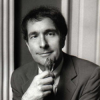Howard Gardner

Howard Gardner
Howard Earl Gardneris an American developmental psychologist and the John H. and Elisabeth A. Hobbs Professor of Cognition and Education at the Harvard Graduate School of Education at Harvard University. He is currently the senior director of Harvard Project Zero, and since 1995, he has been the co-director of the Good Project...
NationalityAmerican
ProfessionPsychologist
Date of Birth11 July 1943
CountryUnited States of America
ignorance thinking trying
If you think education is expensive, try estimating the cost of ignorance.
loyalty integrity differences
Perhaps, indeed, there are no truly universal ethics: or to put it more precisely, the ways in which ethical principles are interpreted will inevitably differ across cultures and eras. Yet, these differences arise chiefly at the margins. All known societies embrace the virtues of truthfulness, integrity, loyalty, fairness; none explicitly endorse falsehood, dishonesty, disloyalty, gross inequity. (Five Minds for the Future, p136)
education impact important
In roughly the last century, important experiments have been launched by such charismatic educators as Maria Montessori, Rudolf Steiner, Shinichi Suzuki, John Dewey, and A. S. Neil. These approaches have enjoyed considerable success[...] Yet they have had relatively little impact on the mainstream of education throughout the contemporary world.
trying optimist ifs
By nature, I am not an optimist, though I try to act as if I am.
height facts dimensions
Now intelligence seemed quantifiable. You could measure someone's actual or potential height, and now, it seemed, you could also measure someone's actual or potential intelligence. We had one dimension of mental ability along which we could array everyone... The whole concept has to be challenged; in fact, it has to be replaced.
teaching learning long
What we want... is for students to get more interested in things, more involved in them, more engaged in wanting to know; to have projects that they can get excited about and work on over long periods of time, to be stimulated to find things out on their own.
problem ability solve
The ability to solve problems or to create products that are valued within one or more cultural settings.
opportunity frustration issues
One must exploit the asynchronies that have befallen one, link them to a promising issue or domain, reframe frustrations as opportunities, and, above all, persevere.
lying hands would-be
If we were to abandon concern for what is true, what is false, and what remains indeterminate, the world would be totally chaotic. Even those who deny the importance of truth, on the one hand, are quick to jump on anyone who is caught lying.
zero judging very-good
If I know you're very good in music, I can predict with just about zero accuracy whether you're going to be good or bad in other things.
inspirational taken writing
No academic ever expects to be taken seriously by more than three other people, because really, we write for three people in our field.
country teacher japan
The countries who do the best in international comparisons, whether it's Finland or Japan, Denmark or Singapore, do well because they have professional teachers who are respected, and they also have family and community which support learning.
running people mind
Most people (by the time they have become adults ) can't change their minds because their neural pathways have become set... the longer neural pathways have been running one way the harder it is to rewire them.
confused book emotional
I need to add that my work on multiple intelligences received a huge boost in 1995 when Daniel Goleman published his book on emotional intelligence. I am often confused with Dan. Initially, though Dan and I are longtime friends, this confusion irritated me.